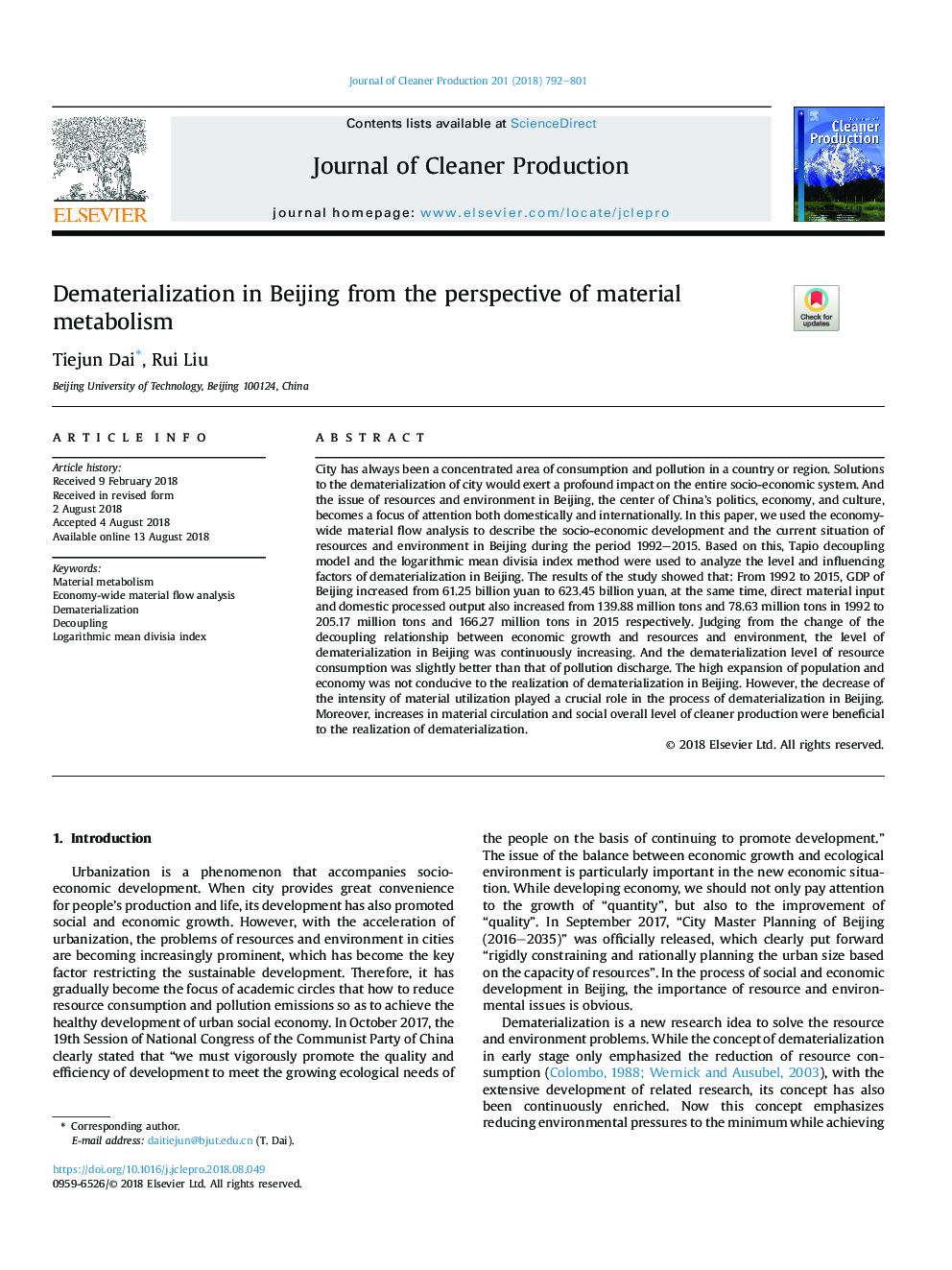| کد مقاله | کد نشریه | سال انتشار | مقاله انگلیسی | نسخه تمام متن |
|---|---|---|---|---|
| 8092871 | 1522051 | 2018 | 10 صفحه PDF | دانلود رایگان |
عنوان انگلیسی مقاله ISI
Dematerialization in Beijing from the perspective of material metabolism
ترجمه فارسی عنوان
تسهیل کالای غیرمجاز در پکن از منظر متابولیسم مواد
دانلود مقاله + سفارش ترجمه
دانلود مقاله ISI انگلیسی
رایگان برای ایرانیان
موضوعات مرتبط
مهندسی و علوم پایه
مهندسی انرژی
انرژی های تجدید پذیر، توسعه پایدار و محیط زیست
چکیده انگلیسی
City has always been a concentrated area of consumption and pollution in a country or region. Solutions to the dematerialization of city would exert a profound impact on the entire socio-economic system. And the issue of resources and environment in Beijing, the center of China's politics, economy, and culture, becomes a focus of attention both domestically and internationally. In this paper, we used the economy-wide material flow analysis to describe the socio-economic development and the current situation of resources and environment in Beijing during the period 1992-2015. Based on this, Tapio decoupling model and the logarithmic mean divisia index method were used to analyze the level and influencing factors of dematerialization in Beijing. The results of the study showed that: From 1992 to 2015, GDP of Beijing increased from 61.25 billion yuan to 623.45 billion yuan, at the same time, direct material input and domestic processed output also increased from 139.88 million tons and 78.63 million tons in 1992 to 205.17 million tons and 166.27 million tons in 2015 respectively. Judging from the change of the decoupling relationship between economic growth and resources and environment, the level of dematerialization in Beijing was continuously increasing. And the dematerialization level of resource consumption was slightly better than that of pollution discharge. The high expansion of population and economy was not conducive to the realization of dematerialization in Beijing. However, the decrease of the intensity of material utilization played a crucial role in the process of dematerialization in Beijing. Moreover, increases in material circulation and social overall level of cleaner production were beneficial to the realization of dematerialization.
ناشر
Database: Elsevier - ScienceDirect (ساینس دایرکت)
Journal: Journal of Cleaner Production - Volume 201, 10 November 2018, Pages 792-801
Journal: Journal of Cleaner Production - Volume 201, 10 November 2018, Pages 792-801
نویسندگان
Tiejun Dai, Rui Liu,
